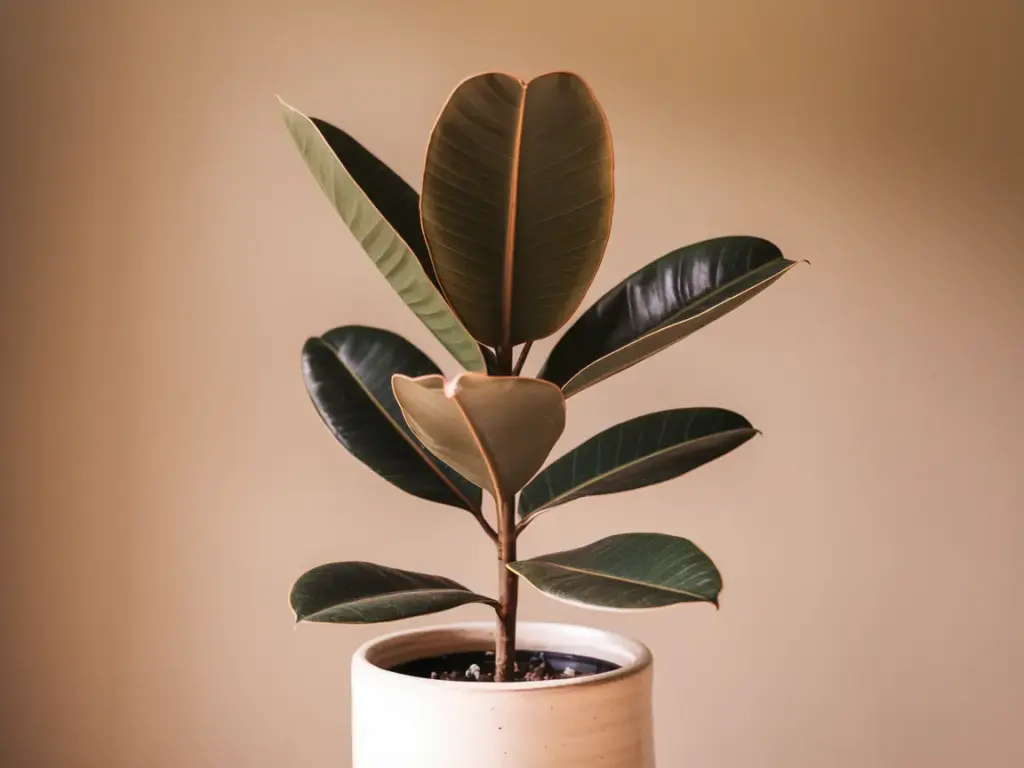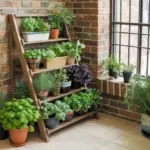7. Rubber Plant: The Glossy-Leaved Air Guardian

Let me tell you about my journey with Rubber Plants! After remodeling my living room with new furniture, I noticed persistent headaches until I brought in a Ficus elastica. Within weeks, those toxic furniture fumes were history, and I had a gorgeous statement plant to boot!
Formaldehyde Fighting Champion
What makes Rubber Plants special is their incredible ability to tackle indoor toxins. My air quality testing revealed:
- Removes up to 80% of formaldehyde
- Filters household chemicals
- Tackles VOCs from new furniture
- Purifies air 24/7 with minimal care
Understanding Growth Patterns
Here’s something I learned the hard way – these plants mean business when it comes to growth! My first Rubber Plant turned into a gentle giant:
- Expect 2-3 feet of growth annually
- Plan for maximum height of 8-10 feet indoors
- Allow 4-5 feet for width spread
- Consider ceiling height before placement
Light and Temperature Secrets
After some trial and error (and one severely sunburned plant), I perfected the environmental conditions:
- Position in bright indirect light
- Maintain temps between 60-75°F
- Protect from cold drafts
- Rotate monthly for even growth
My Proven Maintenance Schedule
Let me share my foolproof care routine:
- Water when top 2 inches of soil are dry
- Dust leaves weekly for maximum air filtering
- Feed monthly during growing season
- Maintain moderate humidity levels
The Art of Pruning
Here’s my secret to keeping these beauties manageable:
- Prune in early spring
- Make cuts above leaf nodes
- Remove any yellow or damaged leaves
- Control height through strategic trimming
Leaf Care for Maximum Air Purification
Want those magazine-worthy glossy leaves? Here’s my technique:
- Wipe leaves with a damp cloth monthly
- Use neem oil for extra shine and pest prevention
- Remove dust with lukewarm showers
- Maintain optimal humidity for glossy finish
Troubleshooting Common Issues
Let me share solutions to problems I’ve encountered:
- Dropping leaves: Usually indicates overwatering
- Brown spots: Check for sunburn
- Yellow leaves: Often means poor drainage
- Leggy growth: Need more light
Coming up next is the versatile Aloe Vera, and you won’t believe its double-duty powers! Not only does it clean your air, but it’s also like having a first aid kit right in your living room. Plus, I’ll share my unexpected discovery about how this succulent helped solve my sleeping problems! Click next to learn why Aloe Vera might be the most practical air-purifying plant you’ll ever own. 🌵
Quick tip: For that extra glossy look and maximum air-purifying efficiency, wipe your Rubber Plant’s leaves with a mixture of water and a drop of organic neem oil once a month. Works like magic!









GIPHY App Key not set. Please check settings